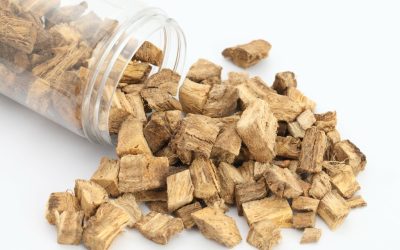Finally, if alcohol allergy you’ve consumed alcohol and experience unfamiliar symptoms, seek immediate medical attention. The most effective way to manage alcohol allergy rash is through complete avoidance of alcohol. If exposure occurs, OTC antihistamines can help alleviate symptoms. Managing and treating an alcohol allergy rash involves avoiding alcohol, treating symptoms, and, in some cases, undergoing immunotherapy.
What Are the Risk Factors of Alcohol Allergy?
- Severe reactions may require emergency treatment to prevent serious complications.
- Our test detects the 40 most common indoor and outdoor environmental allergies, including pet dander, pollen, and dust.
- Some ethnic groups, particularly those of Asian descent, may also be more susceptible due to genetic differences in how alcohol is metabolized.
- The fruit (grapes, apples, juniper berries, coconuts, and oranges), flavours (hops) or grain (malt) from which the drink is made can also be the cause of a true allergic reaction.
You are more likely to have allergic reactions to the grain, wheat, or gluten found in alcoholic beverages than to have allergic reactions to the alcohol itself. As well as being possible to be allergic to alcohol itself, you Sober living home may also be allergic to one or more of the many ingredients found in alcoholic drinks. Yes, an alcohol rash typically goes away once the alcohol is completely metabolized and removed from your system. However, if you have a persistent alcohol allergy or intolerance, you may consistently experience rashes after consuming alcohol until you discontinue its usage.

Sulfites intolerance
Additionally, excessive consumption of alcohol can increase your risk of developing an alcohol allergy. It’s crucial to be aware of these risks and take appropriate preventive measures. However, if exposure occurs, there are several treatment options available. These include over-the-counter (OTC) antihistamines, corticosteroids, and in some cases, immunotherapy. Skin tests involve applying a small amount of a suspected allergen to your skin using a tiny needle. Although used less frequently, blood tests can measure the amount of specific antibodies produced when your body reacts to allergens.

How Long Should You Wait After Taking Benadryl to Drink Alcohol?
More severe reactions include difficulty breathing, tightness in the chest, and swelling of the mouth or face. The very essence of alcoholic beverages lies in the plants from which they derive – be it grapes, apples, juniper berries, coconuts, oranges, hops or malt. While these plant-derived allergens can theoretically trigger true allergic reactions, most are destroyed during processing. Congeners, responsible for the body, aroma and flavour of a drink, play a subtle yet significant role in the orchestration of reactions. To answer this, we delve into the substances within alcoholic beverages that might induce bodily responses. While there is no cure for alcohol allergy, several strategies can help manage its symptoms and reduce the risk of allergic reactions.
Does alcohol allergy exist?

If the alcohol molecule cannot be effectively dealt with by the body, it can cause unusual symptoms to occur. Precautions for a benzyl alcohol allergy primarily involve avoiding exposure to the allergen. This can be achieved by carefully reading product labels and understanding other names benzyl alcohol might be listed under. It is important to distinguish between alcohol allergy and alcohol intolerance. The two conditions have different underlying causes and mechanisms.
- You’ll need to completely avoid alcohol while taking these medications.
- It could be the grains in beer or those lovely fruit notes in wine.
- While a severe alcohol allergy can kill, alcohol intolerance is never so dangerous.
- Preventing an alcohol allergy involves avoiding alcohol consumption.
- If you do drink a beverage that causes a mild reaction, over-the-counter antihistamines may help relieve symptoms.
Can any products treat red facial flush as a result of drinking alcohol?
Alcohol intolerance is more common among people of East Asian descent, affecting between 30%-50% of this population. If you suspect you have an allergic reaction to alcohol, steer clear of it entirely until you’ve consulted with your healthcare provider. If your doctor suspects you have a true allergy to alcohol or another ingredient typically found in alcoholic drinks, they’ll perform allergy testing.
It might sound surprising, but yes, it is possible to be allergic to alcohol, although it’s rare. More commonly, what many people experience is an alcohol sensitivity. People may also have an allergic reaction to specific ingredients in alcoholic drinks rather than the alcohol itself. Those who notice an increase in their asthma symptoms after drinking alcoholic beverages, especially wine, might be reacting to potassium metabisulfite, a common preservative. Living with an alcohol allergy requires a thorough management strategy that extends far beyond simply avoiding alcoholic beverages. You’ll need to make significant lifestyle modifications, including strict ingredient monitoring and maintaining emergency protocols for accidental exposure.

Leave a Reply
You must be logged in to post a comment.